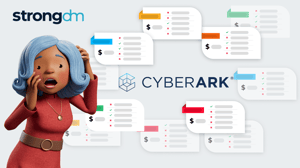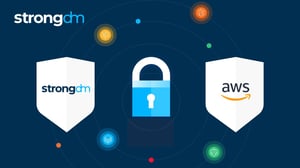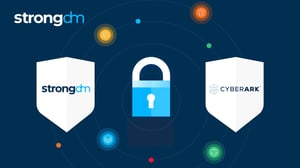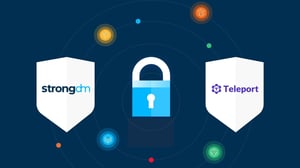
Written by
John MartinezLast updated on:
September 29, 2025Reading time:
Contents
Built for Security. Loved by Devs.
- Free Trial — No Credit Card Needed
- Full Access to All Features
- Trusted by the Fortune 100, early startups, and everyone in between
Pomerium is an "identity-aware proxy" that aims to disrupt the VPN industry. Pomerium works on just about any device, providing remote access management solutions for individuals to enterprise-level companies. Pomerium works as a SASE solution that allows users to manage the authentication and authorization of any internal or third-party application. Essentially, Pomerium adds SSO capabilities to just about any application. However, if you're looking for a more robust way to manage access to databases and Kubernetes clusters, Pomerium might not be the best solution for your needs. This blog post will take a look at a few Pomerium alternatives and discuss the strengths and weaknesses of each.
Pomerium Overview
Brief product summary
Pomerium is a SASE management solution that works in on-premise and cloud environments. Pomerium provides remote access and authentication through a standardized interface to simplify the secure access process to critical infrastructure and applications. Pomerium predominantly acts as an SSO for internal and external applications and eliminates the need for a VPN. Pomerium provides user identity access to any application and works with a variety of third-party providers.
Use cases
- Simplifies workflows for DevOps teams.
- Free end-users from having to use a VPN.
- SASE management to support IT.
- Centralizes access and authentication for applications.
Pluses
- Eliminates the need for VPN.
- Cloud or on-prem options available.
- Can add SSO to any application.
- Centralized authentication and authorization.
- Remote access from any location.
Minuses
- Relatively new in the space.
- Lacks rich customization.
- Minimum purchase of 50 users.
- Non-comprehensive list of available integrations.
1. StrongDM
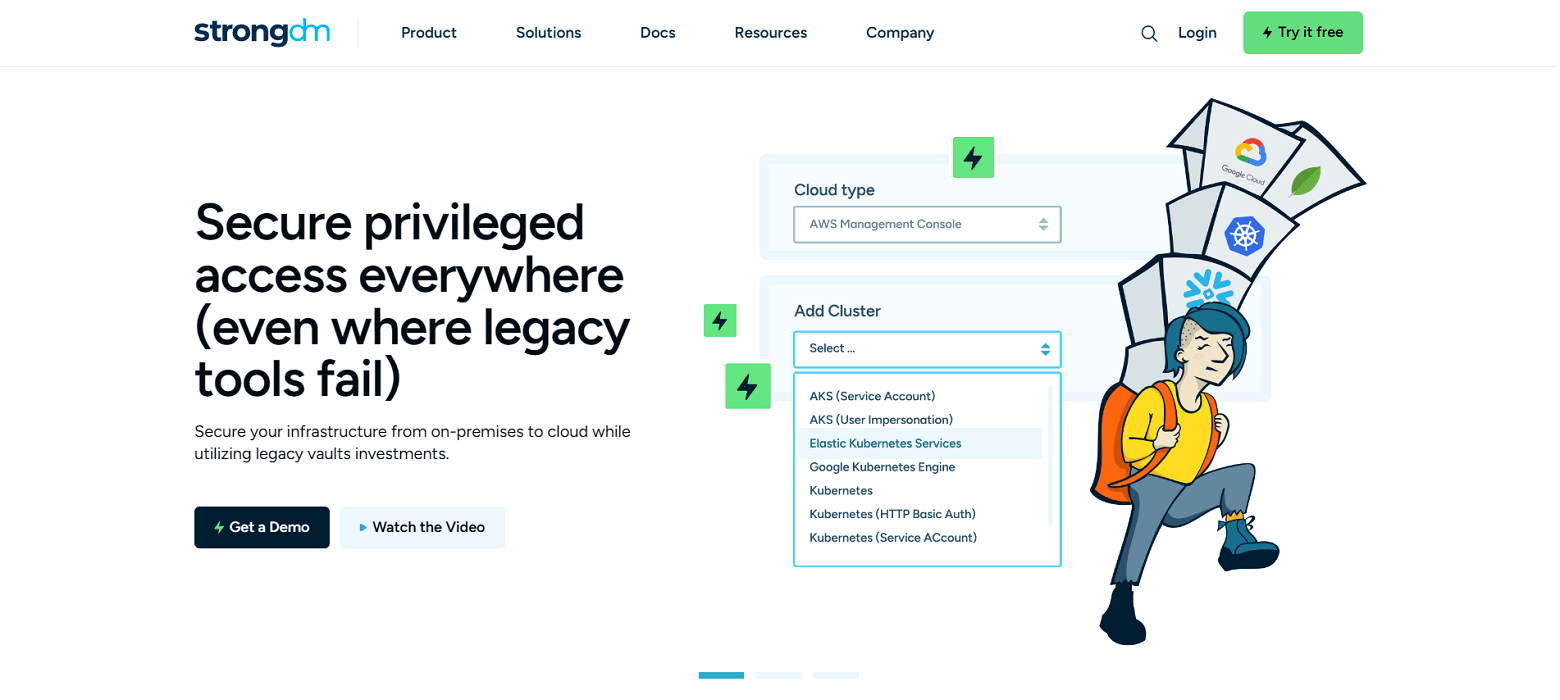
Brief product summary
StrongDM is a control plane to manage and monitor access to databases, servers, and Kubernetes. Their zero trust model means instead of distributing access across a combination of VPN, individual database credentials, and SSH keys, StrongDM unifies user management in your existing SSO (Google, Onelogin, Duo, Okta, SAML, etc...) and keeps the underlying credentials hidden. Neither credentials nor keys are accessible by end users. Because StrongDM deconstructs every protocol, it also logs all database queries, complete SSH and RDP sessions, and kubectl activity.
Use cases
- Faster onboarding- no need to provision database credentials, ssh keys, VPN passwords for each new hire.
- Secure off-boarding- suspend SSO access once to revoke all database, server access.
- Automatically adopt security best practices- least privilege, just-in-time access, audit trail.
- Comprehensive observability and visibility- log every permission change, database query, ssh & kubectl command.
- Vendor privileged access management-connect third-party vendors to resources with project-based access that automatically expires.
- Security and compliance teams-simplify HIPAA, SOC 2, SOX, ISO 27001 compliance certification.
- Modern Cloud PAM solution-built to support a variety of cloud networks, including public, private, multi-cloud, and hybrid.
Pluses
- Easy deployment - self-healing mesh network of proxies.
- No change to workflow- use any SQL client, CLI, or desktop BI tool.
- Standardize logs across any database type, Linux or Windows server, and Kubernetes.
- Graphical client for Windows and macOS.
- See and replay all activity with session recordings.
- Manage via a user-friendly web browser interface.
- Simple, straightforward pricing.
Minuses
- Requires continual access to StrongDM API for access to managed resources.
StrongDM’s G2 Reviews
- 4.8 / 5 stars
Read all of StrongDM’s G2 reviews here.
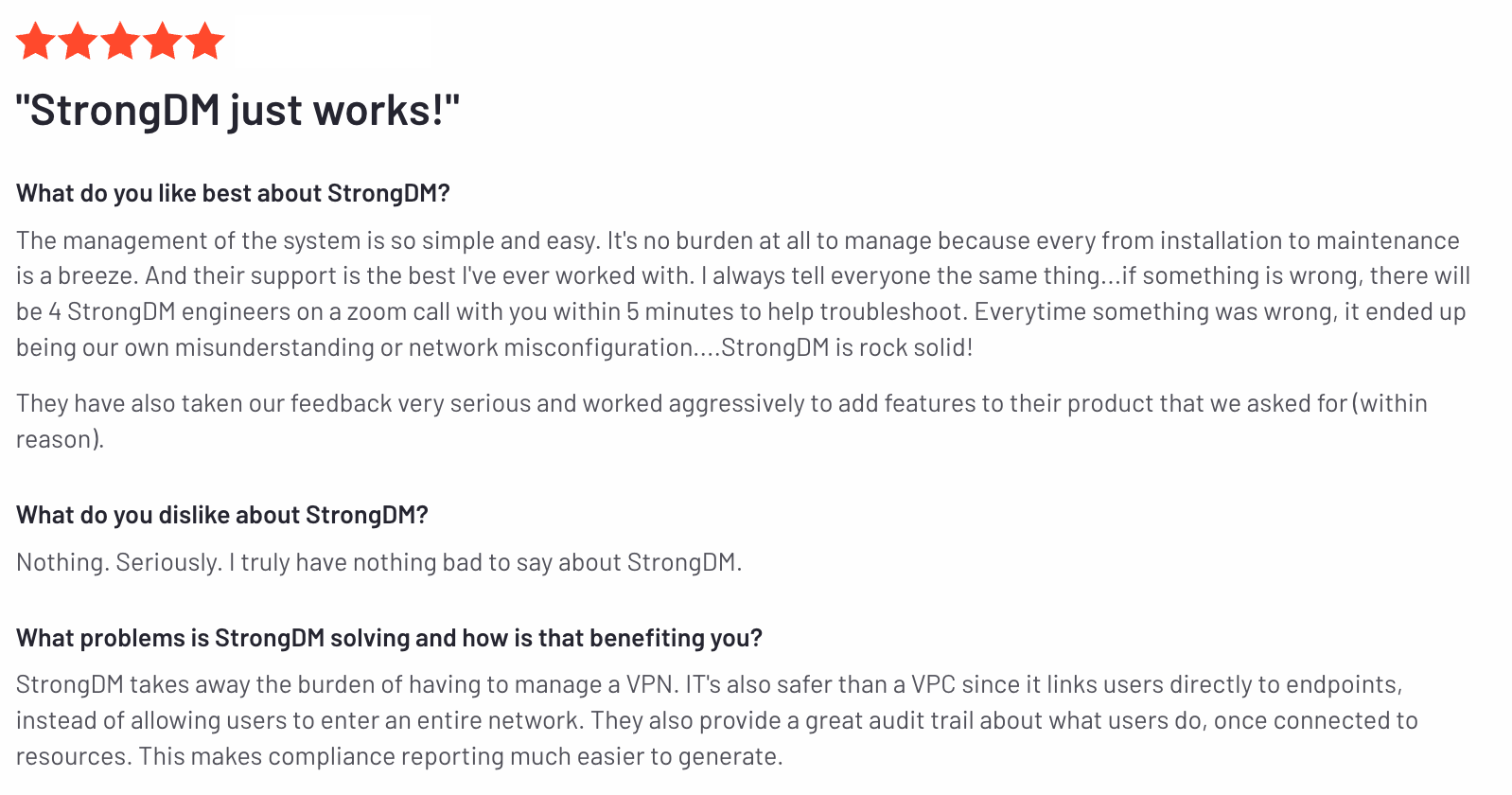
Pricing Information
StrongDM offers simple pricing, including support for all resource types.
Users have the option to sign up for a free 14-day trial.
2. Tailscale
Brief product summary
Tailscale is a zero-configuration virtual private cloud that builds secure networks for WireGuard-encrypted traffic. Tailscale replaces traditional VPNs with a coordination node that acts as a control plane to manage keys and identities. This allows you to create a secure network between cloud resources without the need for firewall configuration changes.
Tailscale is open-source software that scales from single users to enterprise environments in a way that is secure and easy to implement. It integrates with your existing identity provider, making it easy to enforce multi-factor authentication and off-board users who no longer need access.
Use cases
- Connect personal computing environments.
- Create secure point-to-point connections.
- Facilitate remote access from any physical location.
- Establish and enforce security access policies.
- Manage large-scale deployments.
Pluses
- Easy to configure and use.
- Provides audit-compliant logging.
- Integrates with your existing identity provider.
- Works with teams of any size.
- Protects your credentials with automatic key rotation.
Minuses
- Requires some networking expertise.
- The product is still in an early growth phase.
- RBAC is only available at higher-tier pricing.
- Okta integration is only available at higher-tier pricing.
- SAML SSO integration is only available at higher-tier pricing.
3. Perimeter 81
Brief product summary
Perimeter 81 is a cloud-based Secure Access Service Edge (SASE) platform that provides centralized access to local networks, applications, and cloud resources. The company takes a security-first approach and aims to disrupt the VPN industry by offering a simple and scalable network access alternative for organizations of all sizes.
Businesses use Perimeter 81 to secure their remote workforce. IT Admins can build multiple groups and control team permissions using an intuitive user interface. The software then integrates with popular security information and event management (SIEM) tools to help you monitor and log network activity and protect your company’s resources.
Use cases
- Zero trust network access.
- Zero trust application access.
Pluses
- Implements security policies across the network.
- Secures remote access to a variety of resources.
- Access scales with your growth.
- Integrates with systems on all major cloud platforms.
- Provides fully audited access. Delivers a zero trust access model.
Minuses
- Resource intensive, causing performance issues.
- SSO integration is erratic.
- Commonly reported problems with disconnection.
Next Steps
StrongDM unifies access management across databases, servers, clusters, and more—for IT, security, and DevOps teams.
- Learn how StrongDM works
- Book a personalized demo
- Start your free StrongDM trial
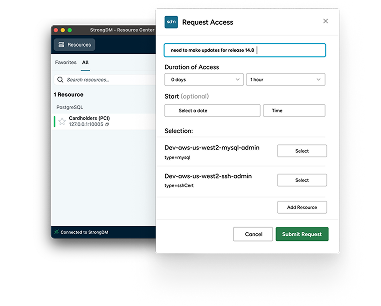
Categories:

About the Author
John Martinez, Technical Evangelist, has had a long 30+ year career in systems engineering and architecture, but has spent the last 13+ years working on the Cloud, and specifically, Cloud Security. He's currently the Technical Evangelist at StrongDM, taking the message of Zero Trust Privileged Access Management (PAM) to the world. As a practitioner, he architected and created cloud automation, DevOps, and security and compliance solutions at Netflix and Adobe. He worked closely with customers at Evident.io, where he was telling the world about how cloud security should be done at conferences, meetups and customer sessions. Before coming to StrongDM, he lead an innovations and solutions team at Palo Alto Networks, working across many of the company's security products.
You May Also Like
